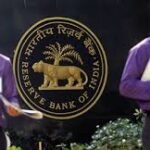World Trade to grow by 4.7 percent in 2014: WTO

Global commerce is set to grow by 4.7 percent this year, in its annual report, the Geneva-based World Trade Organization said on Monday, as a recovery in rich economies is expected to help balance out risks in developing nations. The figures reflect growing confidence that developed countries have recovered from the economic crisis that caused global trade to slump in 2009. The World Trade Organization predicts global commerce will grow 5.3 percent next year, an improvement that would bring it back in line with its 1993-2013 historic average.
The WTO previously had forecast that trade would expand by 4.5 percent in 2014, up from an estimated rate of 2.1 percent the previous year. Although the 2014 forecast represents a brighter picture than the 4.5 percent growth that the WTO expected at the time of its last forecast in September, it is still gloomier than its predictions a year ago.
CONTEXT
The world economy faced a severe global crisis that has spilled from the financial sector to the real economy, including international trade in manufactures, commodities and services. The onset of the crisis can be traced back to July 2007 with the liquidity crisis due to the loss of confidence in the mortgage credit markets in the United States. At first, there was uncertainty about the possible spillovers to the rest of the economy, and there was also discussion about the risks of contagion and decoupling, that is to say, the capacity of other countries – especially developing countries – to isolate themselves from the problems originating in the United States (which is the largest market for many countries). The hope was that the crisis would be restricted to financial markets, with few repercussions on the real economy and the rest of the world. This hope was shattered in September 2008 as the crisis entered an acute phase, with strong downward fluctuations in the stock markets, substantially reduced rates of economic growth, volatile exchange rates, and squeezes in demand and consumption, leading to falls in industrial production and decreasing flows of international trade and FDI, and causing impacts on related areas such as transfer of technology. The crisis has also been accompanied by increases in unemployment, with concomitant declining incomes and demand. By virtue of globalization, the moment the financial crisis hit the real economy and became a global economic crisis, it was rapidly transmitted to many developing countries through a contraction in trade finance and a slowdown in demand affecting bilateral trade flows.
REFRENCE
WTO: Created in 199 5(preceded by Uruguay Round negotiations (1986-94) ,the 159 economies which make up the WTO set trade rules among themselves in an attempt to ensure a level playing field and spur growth by opening markets and removing trade barriers, including subsidies, excessive taxes and regulations.
It is the only global international organization dealing with the rules of trade between nations.
It is an organization for trade opening. It is a forum for governments to negotiate trade agreements. It is a place for them to settle trade disputes. It operates a system of trade rules and monitor national trade policies. Essentially, the WTO is a place where member governments try to sort out the trade problems they face with each other. Its headquarter is in Geneva, Switzerland. Membership: 159 countries on 2 March 2013. Head: Roberto Azevêdo (Director-General)
DEVELOPING COUNTRY: A developing country, also called a less-developed country, is a nation with a lower living standard, underdeveloped industrial base, and low Human Development Index (HDI) relative to other countries. Developing country status may brings certain rights or advantages. There are for example provisions in some WTO Agreements which provide developing countries with longer transition periods before they are required to fully implement the agreement and developing countries can receive technical assistance.






0 Comments